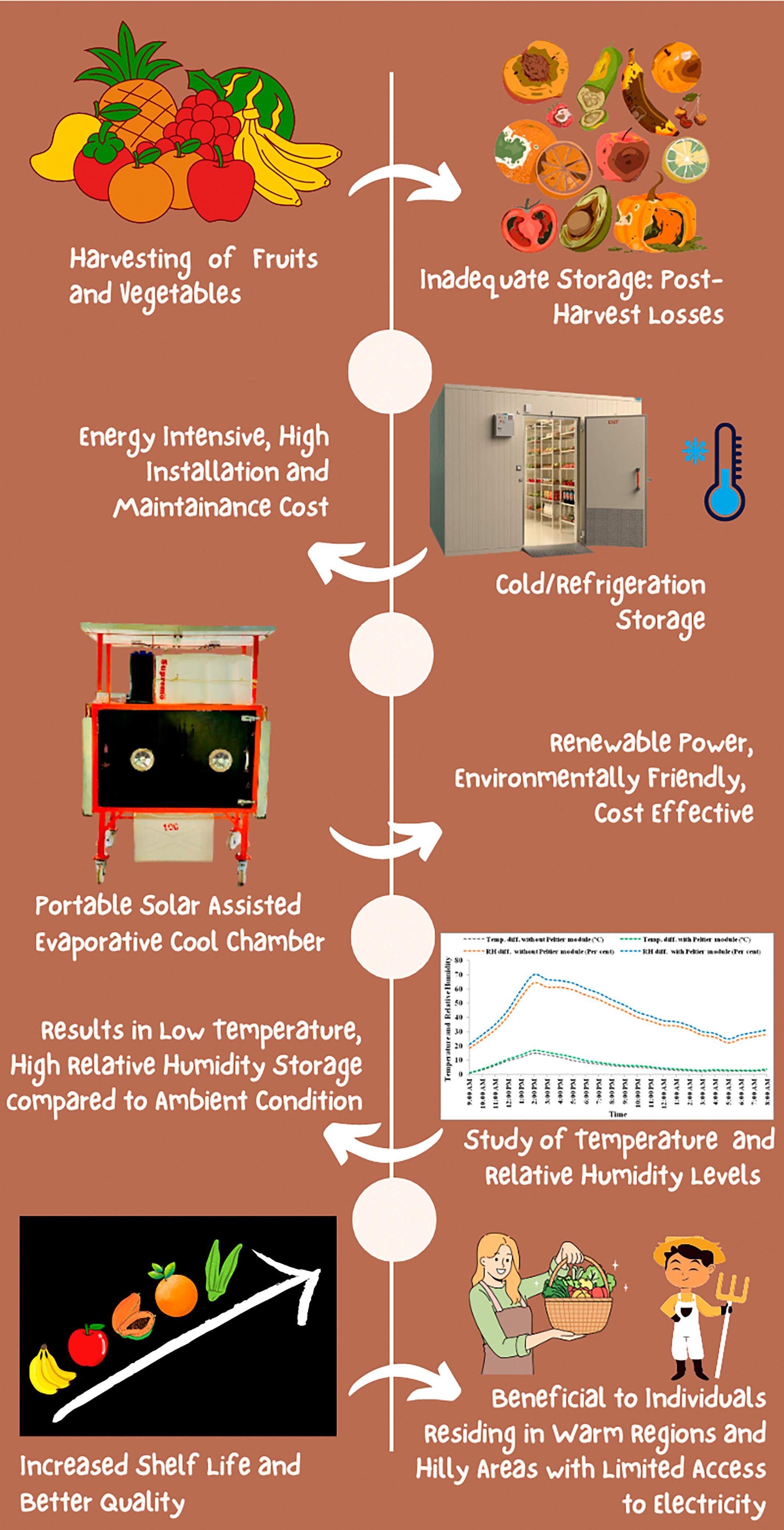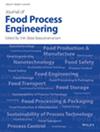Horticulture plays a pivotal role in providing livelihoods, nutrition, and economic growth. However, post-harvest losses due to inadequate storage facilities and practices remain a significant issue. The storage of horticultural produce involves developing and adopting sustainable, cost-effective solutions tailored to the unique challenges of resource-constrained environments. Despite the availability of refrigeration and cold storage facilities, their energy-intensive and expensive nature renders them inaccessible to many. To tackle this problem, a solar-assisted evaporative cool chamber (ECC) with a storage capacity of 250 kg was designed. It is powered by a 200 W solar panel, a 150 Ah battery with a charge controller, a 9 W water pump, and two 7.4 W exhaust fans. Extensive performance evaluation optimized water flow rates, air velocities, and pad materials, leading to a significant temperature drop of 14.9°C and a 64.3% humidity increase with 98.48% saturation efficiency, achieved with a water flow rate (6 L/min), air velocity (4 m/s), and honeycomb pad material. The inclusion of a thermoelectric Peltier module further lowered the temperature to 17.0°C and raised humidity to 70.1% within the ECC. Storage studies with four fruits (bananas, apples, papayas, and oranges) and four vegetables (tomatoes, okras, brinjals, and cucumbers) demonstrated that products stored inside the ECC remained marketable for an additional 4–15 days, nearly doubling their shelf life compared with ambient conditions. An economically viable ECC solution effectively addresses the needs of hot climate regions, providing a valuable solution for post-harvest preservation.
Horticulture is crucial for livelihoods, nutrition, and economic growth that face challenges in post-harvest losses due to inadequate storage facilities. Traditional refrigeration solutions are often inaccessible in resource-constrained environments. To address this, a solar-assisted evaporative cool chamber (ECC) with a 250 kg storage capacity was designed and evaluated for performance. The solar-assisted ECC presents a practical and cost-effective technology with the potential to significantly improve post-harvest management, empower small-scale farmers, and promote sustainable food systems, particularly in resource-constrained environments.



